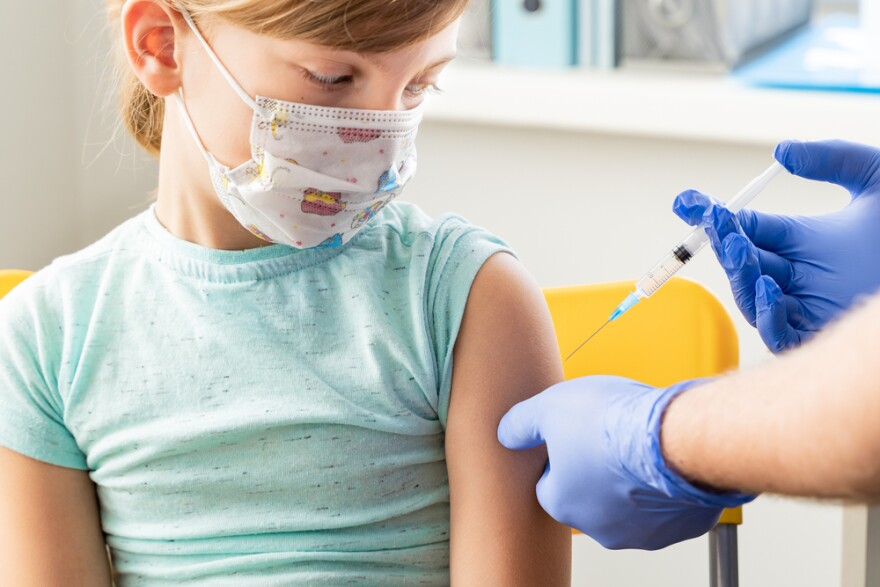INTERVIEW HIGHLIGHTS:
Vaccines and the pandemic
There's been a gap in the vaccination procedures and schedules, mostly due to the pandemic. There is a significant concern that we're going to have a lot of children coming back to school who aren't up to date on their vaccines. And that some of these pathogens may sneak into the schools and start spreading.
Vaccine hesitancy
These vaccines are very, very effective to a large extent. They're a victim of their own success. Parents nowadays don't know what these pathogens can do. And unfortunately, the anti-vaxxers have leveraged fear and pushed on these false claims. And it's really a tragedy that this is going on.
Vaccine hesitancy goes back to the very first vaccine, Jenner's smallpox vaccine, where we use cowpox to immunize people against smallpox. So this is a longstanding issue in vaccine history. And unfortunately, we just, we were struggling to get by.
And I think that it's important for physicians, public health officials, and educators to really emphasize the value of vaccines. These pathogens are dangerous and can cause severe diseases that could result in death. So, it's important to keep the children's vaccine schedules up to date.
The other thing, of course, is that if we fully vaccinate the population, we're at much less risk as a population of having these pathogens reenter the population.
Are parents seeking out the COVID-19 vaccine?
I think the uptake has been a little on the slow side. The vaccine was approved for younger children just several months ago. So, I think that we're starting to see a slow uptake, but I think the numbers are increasing as far as parents getting their kids vaccinated with the COVID vaccine. And it's an important thing to get this pandemic under control.
Early in the pandemic, there were concerns about the vaccine and so on and so forth. But in the United States, we’re now approaching 600 million doses of vaccine given. And we have a mountain of information that these vaccines are safe and effective. And I think as we move through the pandemic, I think people will feel more and more comfortable with the vaccine, more and more comfortable vaccinating their children.
What steps should parents take when they decide against the COVID-19 vaccination?
Obviously, we're going to encourage vaccination. If you decide not to get your child vaccinated, they're going to be more susceptible to COVID than their vaccinated colleagues. And in regards to COVID, to keep safe, wearing a mask, hand-washing, and trying to avoid large indoor crowds. That's going to be very, very difficult once the children head to school.
About the current resurgence in COVID-19
New variants can emerge relatively quickly and take over the virus milieu. Think about omicron, which was first identified in South Africa in late November of 2021. Within eight weeks we were dealing with omicron here, and by mid-January, we were seeing a peak of COVID-19 that we hadn't seen at all during the pandemic. So that really speaks to how quickly a new variant can arise and really spread quite rapidly.
If a new variant does arrive, if you're not vaccinated or children are not vaccinated, you may not have time to get them fully vaccinated before the virus circulates widely. You know the vaccines are two or three doses and you know you're not considered fully immunized until two weeks after your second dose. It may be a month or a month and a half or two months before you get the full benefit of the vaccine.
So, it's important to get vaccinated, and get your booster doses because if a new variant does arrive – and we've seen that before - you're much, much safer getting fully vaccinated and boosted than if you're not.
RESOURCES:
Texas Minimum Vaccine Requirements
Texas Minimum Vaccine Requirements For College Entry
Finding and Updating Vaccine Records
What is an Exemption and What Does it Mean?
Interview highlights were lightly edited for clarity.
Got a tip? Email Sam Baker at sbaker@kera.org. You can follow Sam on Twitter @srbkera.
KERA News is made possible through the generosity of our members. If you find this reporting valuable, consider making a tax-deductible gift today. Thank you.





